This decade included memorable performances by Liz McColgan, Sally Gunnell, Linford Christie, Jonathan Edwards and Colin Jackson as our 'greatest moments' series continues to mark the 80th anniversary of AW
Powell’s Tokyo triumph
Bob Beamon’s astonishing mark of 8.90m from the 1968 Olympics still stood as the men’s long jump world record at the time of the 1991 World Championships in Tokyo. An American would finish top of the podium again, only it wasn’t the one that many expected would leap their way to gold.
Carl Lewis, who had already won the 100m in a then world record time of 9.86 and had been unbeaten at the long jump for 10 years, had Beamon’s mark firmly in his sights. He did surpass it in Tokyo, and produced the greatest ever series of jumps, yet still it wasn’t good enough for victory.
Lewis opened with a championship record of 8.68m, while his fellow American Mike Powell went second with 8.54m in the second round. Lewis then improved with jumps of 8.83m and 8.91m. The latter would have broken Beamon’s mark but, with both of his attempts being over the legal wind limit of two metres per second, could not stand for record purposes.
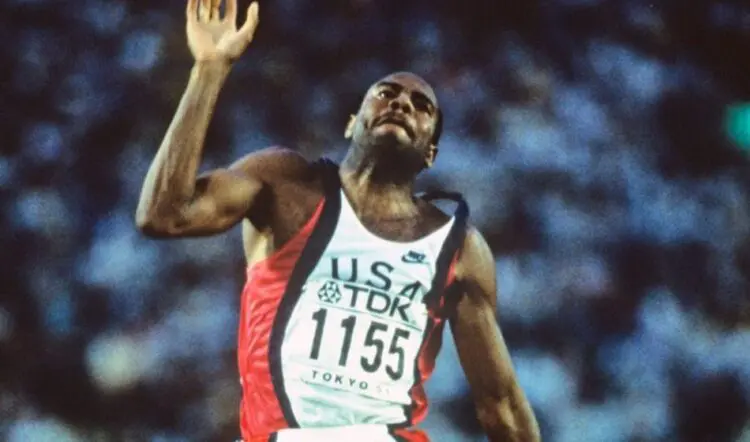
It was in round five that Powell stepped forward. He got everything just right and, with a legal wind and a career-defining jump, his 8.95m sent him soaring into a new stratosphere.
When the measurements were confirmed, Powell could not conceal his delight, setting off on a celebratory sprint down the track. Lewis had two jumps remaining, and the watching crowd and TV audiences were absorbed. He did respond magnificently, but his leaps of 8.87m and 8.84m were not enough.
McColgan’s 10,000m masterclass
After giving birth to daughter Eilish at the end of 1990, Olympic 10,000m silver medallist and Commonwealth champion Liz McColgan had been dropped by Nike and written off as an athletic force to be reckoned with. She wasted little time in getting back into training and, as she told AW: “It was going to take somebody really special to beat me [at the Tokyo World Championships].”
In the 10,000m final in Japan, McColgan was quick to set out her intentions, moving into an early lead. With eight laps to go, Ethiopia’s Derartu Tulu went in front in an effort to bring the pace down but, as the Scot recalled: “I was able to surge past her because I’d done it in training umpteen times. There was just no way I was going to let that pace stay. I think it’s probably one of the only races where I had every base covered.”
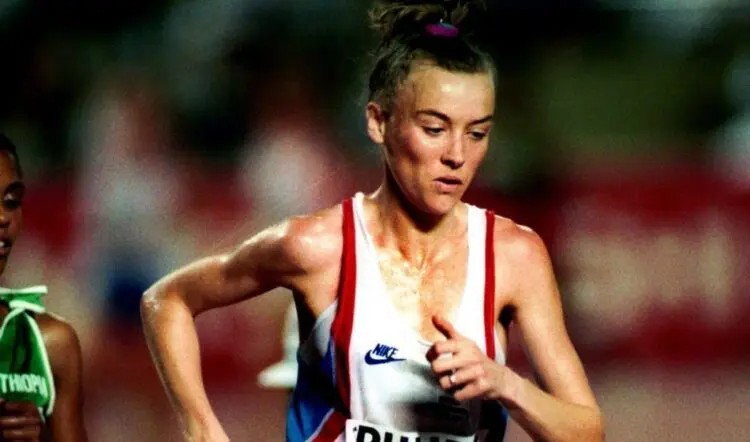
McColgan hit the line in 31:14.31, well clear of the Chinese duo of Zhong Huandi (31:35.08) and Wang Xiuting (31:35.99).
Innovation brings British elation
Roger Black, Derek Redmond, John Regis and Kriss Akabusi combined to produce one of the greatest moments in the history of British athletics when they won the 4x400m title at the World Championships in Tokyo.
A masterclass of strategy and tactics, the quartet flipped traditional relay theory on its head – against their team management’s wishes – by placing the strongest runner, Black, on the first leg and a veteran 400m hurdler, Akabusi, on the anchor.
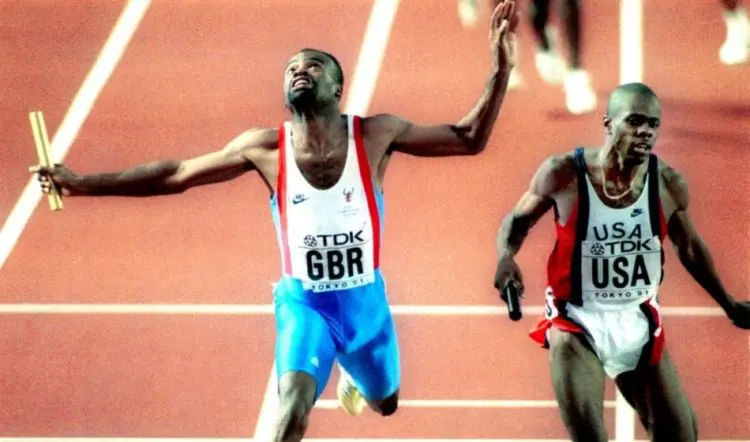
The plan worked to perfection and when Akabusi stormed past individual world 400m champion Antonio Pettigrew in the final metres of the last leg it was the first time the United States had been beaten in the final of a world or Olympic men’s 4x400m since the 1952 Helsinki Games.
READ MORE: Relay legends look back at Tokyo 1991
Christie completes the set
Linford Christie’s career has veered between great success and controversy. Upgraded to 100m Olympic silver after Ben Johnson’s disqualification in 1988, he was very nearly banned from the 200m, escaping with a warning after testing positive for pseudo-ephedrine in 1988.
His positive test for nandrolone in 1999, plus the challenges he had with the media, was addressed last year in the excellent documentary, Linford.
He was at the peak of his powers in 1993 and, when he crossed the finish line at the World Championships in Stuttgart with a then European record of 9.87 that stood as the British record until 2023, he completed a remarkable set.

He became the first 100m runner to hold the Olympic, World, Continental and Commonwealth titles at the same time. Into a headwind of 0.3, he beat the US trio of Andre Cason, Denis Mitchell and Carl Lewis, becoming the oldest 100m world champion at the age of 33 years and 135 days old.
Jackson’s joy
After experiencing crushing disappointment at the Barcelona Olympics the previous summer, where injury problems meant he finished seventh, the 1993 World Championships bore witness to a virtually flawless 110m hurdles performance from Colin Jackson.
He led all the way and took 0.01 off Roger Kingdom’s world record with a spectacular run of 12.91. Behind him Tony Jarrett took second with 13.00, taking 0.13 of a second off his PB and breaking the English record.
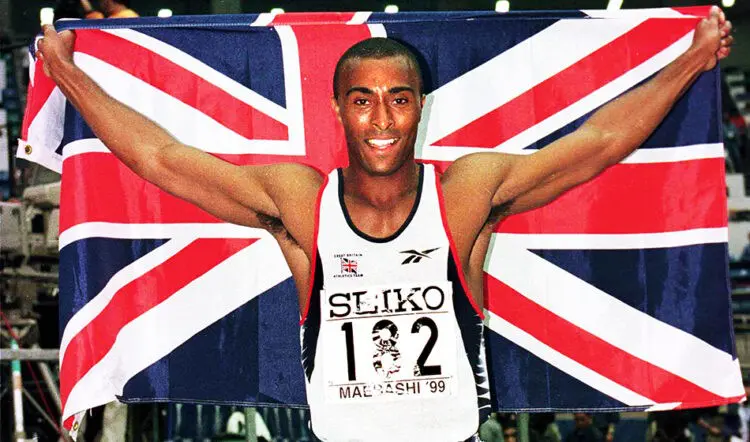
“I wanted to be precise, accurate and fast,” Jackson recently told AW. “It all went smoothly, but I didn’t really know how perfect it was until I had crossed the line. I didn't just produce my very best, I produced the very best the world had seen.”
Gunnell’s greatest race
Sally Gunnell had become the Olympic champion in Barcelona but it was her World Championships performance in Stuttgart, and the head-to-head with Sandra Farmer-Patrick, that many view as one of the best ever 400m hurdles contests.
The American went off fast and was clear at 200m before Gunnell closed on the bend. Farmer-Patrick went away again and took the last two hurdles better but the Briton fought back and edged it, winning in 52.74 to her rival’s 52.79. Both were inside the previous world record of 52.94, with Gunnell becoming the first British woman to break a track world record since Ann Packer over 800m in 1964.
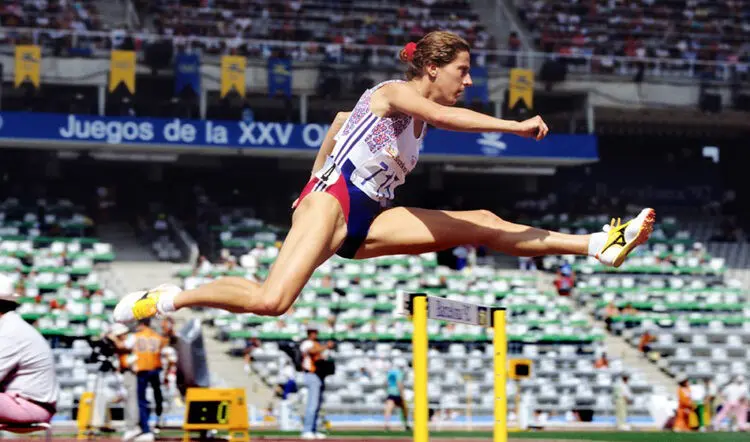
“Technically it was the perfect race,” said Gunnell. “I had dinner with Colin and Linford the night before and they helped convince me I could win.”
Edwards’ perfect day
Jonathan Edwards found himself having to wait in mid-air. It was at that point he knew.
He was about to break the world triple jump record. Again.
August 7, 1995 proved to be the perfect day for the Englishman. He had never felt in such command of his sporting discipline before competing at the world championships in Gothenburg and he would never hit quite the same exceptional standards again.
There would be a second world gold, plus Olympic, European and Commonwealth titles to celebrate, but that second-round leap in Sweden belongs to a category of its own.
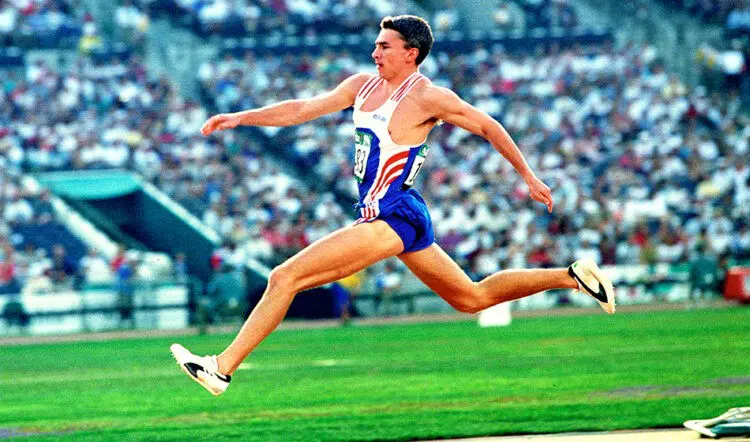
During the winter of 1994/95, he changed his jumping technique and began his season by breaking the British record with a leap of 17.58m at Loughborough, before then reaching 18.43m at the European Cup in Lille. The wind reading of +2.4 meant it could not count as a legal jump, but Edwards then secured his first world record with a leap of 17.98m in Salamanca.
At the World Championships, Edwards secured gold and broke his record again, by becoming the first man to legally leap beyond the 18-metre mark with his first-round 18.16m. His next effort – measured at 18.29m – is the one that the world remembers and has not yet been beaten.
“That was two boundaries – 18 metres and 60 feet – both gone in the same competition. It was quite something,” he said.
Johnson owns Atlanta
The expectations of a home crowd. The decision to wear custom-made golden spikes. The target of becoming the first man to win 200m and 400m gold at a single Olympics. Michael Johnson had a lot to live up to when he took to the track at the Atlanta Games of 1996. Yet, success seemed inevitable for the American.
With his distinctive, upright running style and gold chain swinging around his neck, he won the 400m first, clocking 43.49 to establish an Olympic record that would stand until Wayde van Niekerk broke the world mark at Rio 2016.
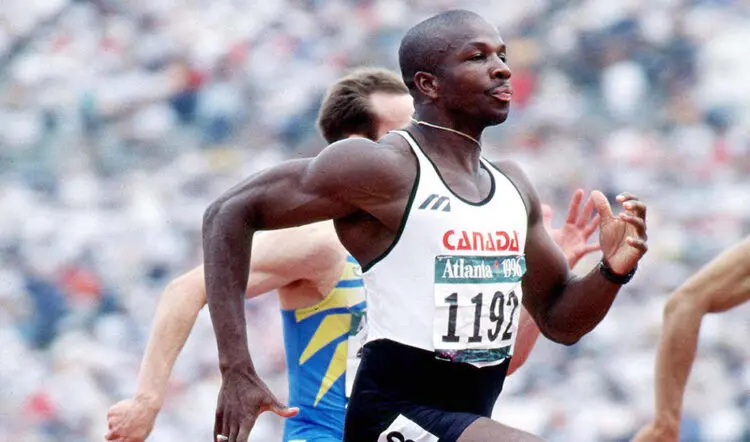
The golden double was completed with a run of 19.32 that took down his own mark of 19.66 (set earlier in 1996 to succeed Pietro Mennea’s 19.72 from 1979) and stood as the world record for 12 years until a certain Usain Bolt burst on to the world scene.
Did you know?
The 1995 World Championships were the first to have live results posted on the internet.
